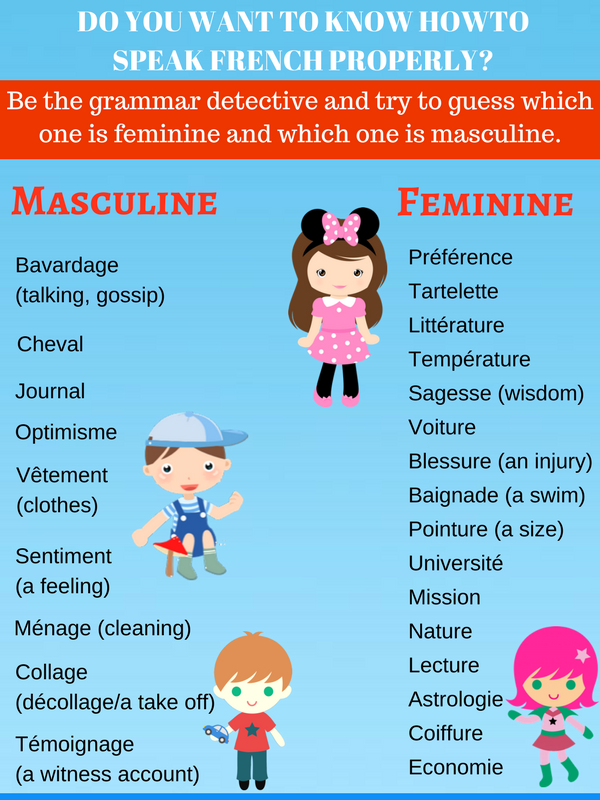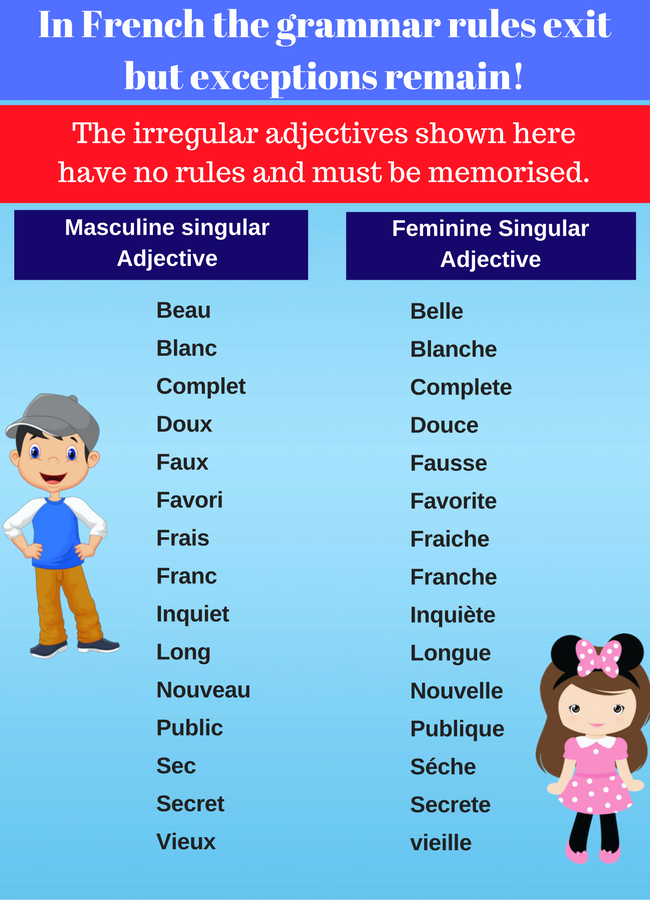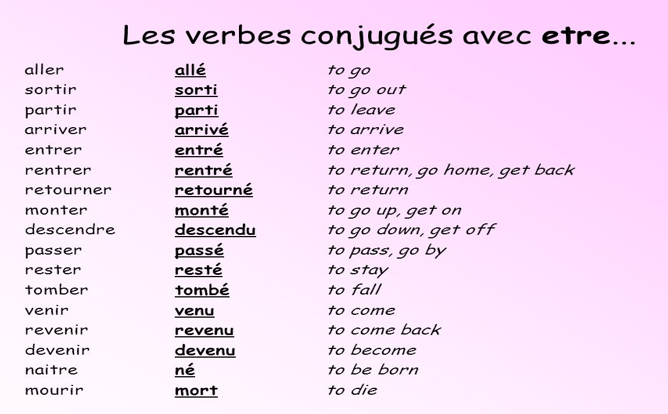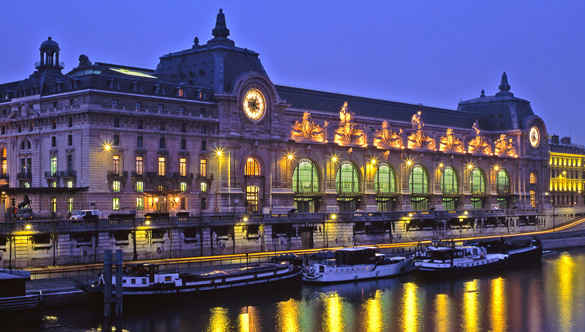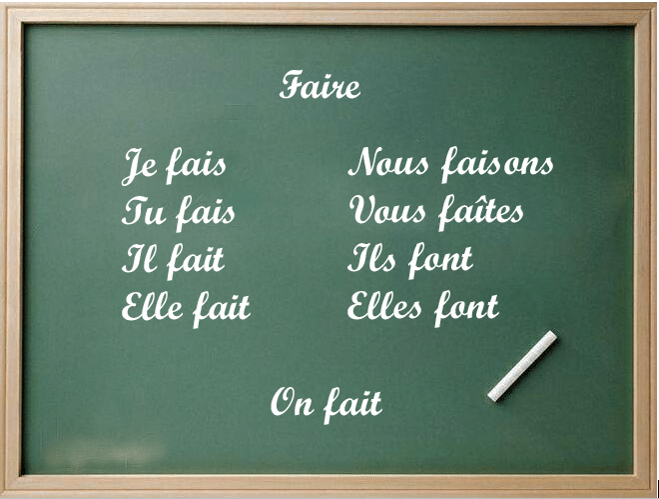« Aimer, ce n’est pas se regarder l’un l’autre, c’est regarder ensemble dans la même direction ».
Love doesn’t mean gazing at each other, but looking, together, in the same direction.
Antoine de St-Exupéry
Ah l’Amour, le beau, le vrai, le grand! (Ah love, the beautiful one, the real one, the true one!).
What would life be without love? Not as wonderful I’d imagine! Declaring your love to the person of your dreams can be a bit daunting so why not imagine a very romantic way to express it?
And what’s more romantic than telling someone you love him/her than by saying it in the language of love, French?
Not only will you impress your loved one, you will also make his/her heart melt and you will, therefore, become irresistable ! You’re already in a relationship?
Telling your partner romantic French phrases will add some originality and spice to your relationship! You’re planning a trip to France?
Well, let me tell you: you cannot fully immerse yourself in French without knowing some romantic expressions. You never know where a night out in a lovely French town can lead you to…
Whichever way you look at it, learning romantic French expressions is a must when it comes to love! In this article, I will teach you some phrases and quotes for you to romance your darling (to be).
Maintenant, tombons amoureux en français! (Now, let’s fall in love in French!)
1) Comment draguer en français? How to flirt in French? You have just met the woman/man of your dreams so it’s now time to woo her/him (woo is faire la cour in French).
I will tell you how! Some expressions might seem a bit cheesy but still they are so attractive. Learn them, build your confidence up and go and seduce that lovely person you cannot stop thinking about!
Je peux vous offrir un verre? This means : Can I get you a drink? Imagine the scene: a lovely summer afternoon, you’re sat outside a bar enjoying the sunshine when suddenly you see that beautiful lady.
Offering someone a drink is a great way to start a conversation! You could also buy this person a coffee: Je peux vous offrir un café?
Vous venez souvent par ici? If you think offering a drink to somebody straight away is a bit too straight forward, you could simply ask them if they often comes around here and therefore say “vous venez souvent par ici?”.
Vous êtes célibataire? C’est impossible! Don’t we all like a bit of flattering? Of course, we do! So here is a sentence to boost your loved one ego: Vous êtes célibataire? C’est impossible! (You are single? That’s impossible!)
2)Sentences to totally avoid when flirting in French!
Is there are sentences to say when flirting, there also are sentences to avoid!
Here are a couple of phrases you shouldn’t say at the risk of sounding slightly ponderous…
T’es trop charmante! Have you ever been in the situation where you’re walking down the street and you hear someone whistling at you? How cringy?!
Well, telling a girl “t’es trop charmante (word for word: you’re too charming)would have a similar effect.
Calling someone charming isn’t obviously bad but saying “trop charmante” (too charming) would appear rather uneducated.
C’est quoi ton 06? In France, most mobile numbers start with 06. Therefore asking someone for his “06” is the equivalent of asking him for his mobile number in a very rude and so unromantic way.
3) Romantic phrases The flirting stage is over.
It’s now time to move onto more serious matters and to become romantic.
In the following grid, I wrote some French romantic sentences you should learn and say to your chéri (your darling)!.
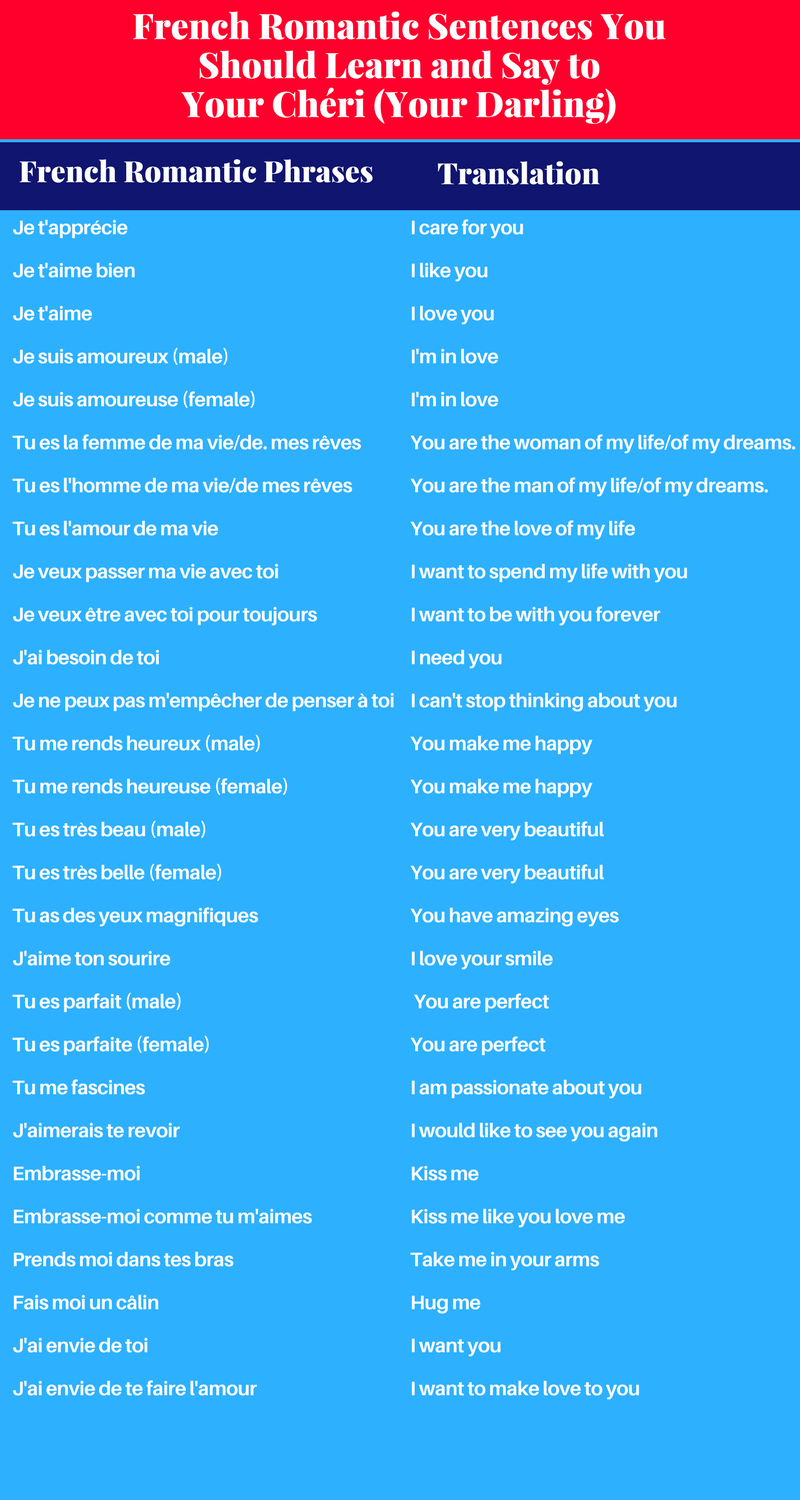
4) Romantic questions in French You may also want to ask questions to the love of your life.
Here are some of the most important ones.
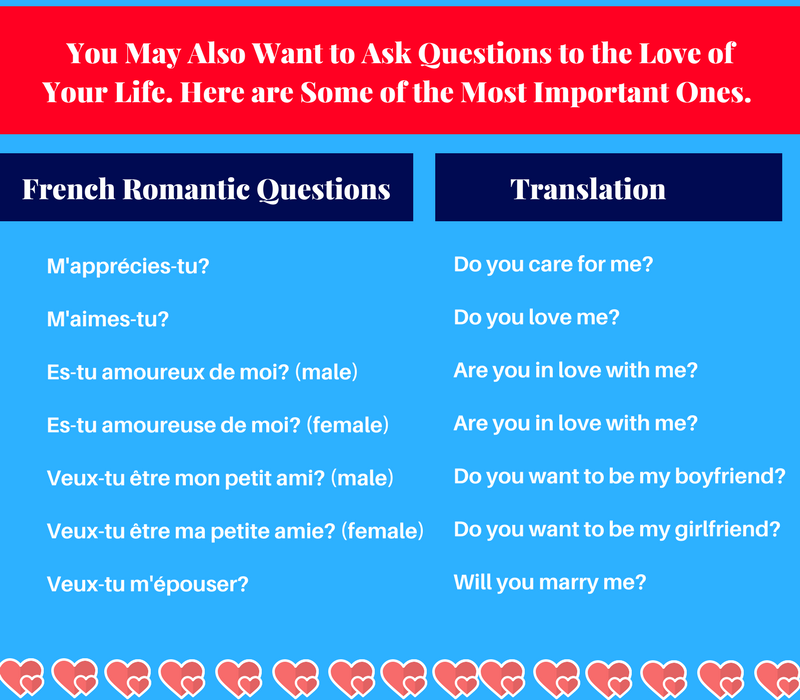
Here is all you need to know to charm a French person. Tell him/her some of these romantic phrases and let the magic begin! I wish you both a long and happy loving life together!




